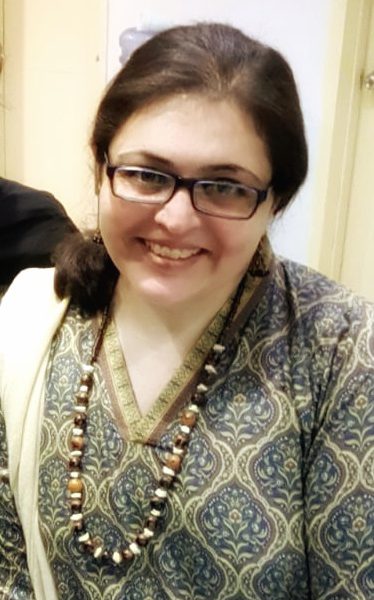My diabetes diagnosis came during the summer of 1996. I had turned 15 a few weeks earlier and the telltale signs had started creeping in a little before then. Things like massive weight loss, despite regular appetite (where my clothes were looser as opposed to “fitting better”), increased thirst and inexplainable lethargy were taken as part of growing pains – that every 15-year-old typically goes through. And having desi parents only complicated it – because in their opinion, they had given my sister and I the best upbringing they could afford (and in every sense, that was true). So, when a random lab test revealed my fasting blood sugar to be in excess of 500. My mother thought it was a freak result and it was brushed under the table – till my dad’s younger brother (also a doctor) rang our doorbell at 3 am one night to check my sugar. This is a separate story, for another time 😊. Only when this home test turned out to be as bad as the lab test and my uncle (chacha) explained (to my parents) the severity of my situation, did my parents start acting.
I was rushed to one of the biggest hospitals in Karachi, where I spent four days and three nights. Constant blood tests, needle pricking, insulin shots were now officially my new normal. And in a few days, I was set to go home. Unfortunately, my parents were still in denial; after all: how, where and (most importantly) why did they miss these otherwise obvious symptoms of their daughter being “unwell”?
In retrospect, I bet I can very easily and safely claim that no 15-year-old enjoys being different: having to deal with constant finger pricks, injections, doctors’ visits – the whole drill, you know? I was due to give my GCSEs in another year and was in my final year at school. School farewell parties, college applications, career choices should have been the only thing on my radar. No? Why would I want to deal with anything else?
So back in “1996” when I was diagnosed, recall that the internet wasn’t really a thing. Back then, you couldn’t just Google what you wanted to know about managing diabetes and there were no social media platforms to connect with others living with diabetes on. This meant that I was entirely dependent on my medical team to keep me going. And I guess that was the starting point of so much pain and agony that could have been avoided – had my treatment taken on a more wholistic approach.
Ironically, nobody told me about diet management, exercise was suggested – but I was never told about how it was so important to my new normal. Over time, we found a female endocrinologist at an equally good hospital near home – whom we engaged for my caretaking. But it was the same thing again. My home testing was monitored, my lab results were regularly updated; but nobody asked how “I” (as the patient) was doing. I recall that “mental health” was never much of a thing and to date, it is still largely taboo – despite things being better than what they were back in 1996.
Over time, this endocrinologist passed away and I was referred to another campus of the hospital that I was originally diagnosed at. This doctor came with his own treatment plan – which was completely different from what I had been following for so long, before I had started consulting with him. Again, I was told to follow a certain treatment regime – but I don’t remember being asked for a “buy in” on it. Or even being explained what changes I could expect with this new treatment plan. It was around this time, that I was further diagnosed with Hashimoto’s Thyroiditis, a.k.a. hypothyroidism. My weight had spiraled completely out of control and this was compounded with lethargy, mood swings, general fuzziness, and patchy dry skin. Logically, TSH and t4 tests were ordered and results dictated one extra thyroid medicine be added to my already very confusing medicine regime. I somehow don’t recall ever being counselled on what causes hypothyroidism in a Type 1 diabetic or that my (aforementioned) symptoms were typically characteristic of this condition. And in all this time, my family and colleagues at work described me as temperamental and difficult to deal with.
I keep wondering why I never had access to any kind of counselling, throughout my initial diabetes journey? Or why nobody ever just considered referring me to a therapist. A new diabetes diagnosis is, after all, a total lifestyle change and should be treated accordingly. One of the endocrinologists I was regularly consulting with, even told my parents not to expect too much of me – since, in their opinion being a diabetic was like being on life sentence. Over time, I understandably went down the path of what we all know as diabetes burn out and I literally just quit consultations with my medical team. Funnily, though, I would visit random doctors to help me if my blood sugar readings would (in my opinion) be out of whack! But those doctors’ visits would be so random and so far apart, that the less said about them – the better. The irony of the situation is that none of this should have (ever) had to happen to me. Basically, to anyone – for that matter.
But it did and for several years I was literally on my own, until Covid 19 happened and I decided to take another shot at my life. I took a random chance (early year 2020) with an endocrinologist at a known hospital that is conveniently at a walking distance from where I live. While taking my history, I think he suffered several brain aneurysms because my case was pretty messed up. And I cannot even begin to describe just how messed up my case was.
This new consultant endocrinologist has been a blessing for me. He rearranged my entire medicine regime, adding several oral medicines to my insulin therapy. Vitamin deficiencies typical to Type 1 diabetics (b12, iron and magnesium) were addressed and I am taking supplements for the same. Despite still having to go a long way, I’ve even managed to lose a visible amount of weight. And in the 24 odd years that I’ve been a type 1 diabetic, no doctor has tapped into these aspects of my wellbeing.
And most importantly, I am now a happier person. I guess once you internally start taking care of yourself, it improves your overall wellbeing. This is most evident when the very coworkers who used to describe me as temperamental, now tell me that I am not quite as difficult as what they had initially taken me for.
At this point in time, my only wish is for a cure for diabetes; but I know that is still a distant dream. So in the meantime, I can only hope and pray and wish that when people embark on their diabetes treatment plans – they are able to engage in a wider encompassing approach, where their mental wellbeing is taken as seriously as their physical health. Because to be completely honest: both facets go hand in hand and one without the other, is by no means, a life that anyone would want to live.


